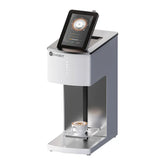The Environmental Impact of Catering and How to Mitigate It
In recent years, there has been a growing awareness of the environmental impact associated with catering and food services. Whether it's an intimate gathering or a large event, catering can significantly contribute to waste and environmental degradation. As conscientious individuals and businesses, it is essential to explore ways to mitigate these effects while still delivering memorable culinary experiences.
The Environmental Challenges
The catering industry faces numerous environmental challenges, including food waste, excessive packaging, and energy-intensive processes. Each step of the food service chain, from production to disposal, potentially contributes to the carbon footprint. Popular tourist destinations such as Barcelona are seeing increased focus on sustainable practices as they balance tourism and environmental preservation.
Food Waste and Packaging
One of the most significant issues is food waste. Many catered events produce excess food, much of which is thrown away. This waste contributes to greenhouse gas emissions when left to decompose in landfills. Furthermore, the abundance of single-use plastics and other non-biodegradable materials used in packaging exacerbates the problem.
Innovative Solutions
There are many practical strategies to reduce the environmental footprint of catering services. Among them is the innovative use of technology. The PrintPen - portable food printer with edible ink offers a creative solution. It helps reduce waste by allowing caterers to customise food items on-the-spot, minimising the need for excess printed materials and packaging. With this technology, a vibrant touch can be added to foods without relying on traditional, wasteful methods.
Sustainable Practices
- Advanced Planning: Catering companies can better manage resources and minimize waste through meticulous planning and accurate guest counts.
- Locally Sourced Ingredients: Sourcing ingredients locally reduces the carbon footprint associated with transportation and supports local communities.
- Composting and Recycling: Implementing robust recycling and composting programs can offset a significant amount of waste.
- Utilisation of Eco-friendly Technologies: Using products like PrintPen can enhance presentations while staying eco-conscious.
Embracing Change
By adopting sustainable practices, including advanced planning, waste reduction techniques, and leveraging eco-friendly technologies, the catering industry can reduce its negative environmental impacts. Furthermore, destinations like Barcelona, famed for its rich culinary scene, are beginning to note the importance of sustainability as tourism and environmental stewardship intertwine.
As consumers demand more sustainable options, catering businesses have the opportunity and responsibility to innovate. For more information on sustainable solutions for the catering industry, visit Evebot Store.
Empowering catering services to embrace sustainable practices not only benefits the environment but also enhances the overall dining experience with meaningful choices. Together, we can savor all the flavours the world has to offer, responsibly.







